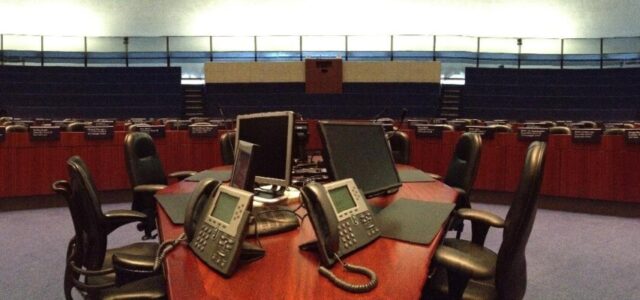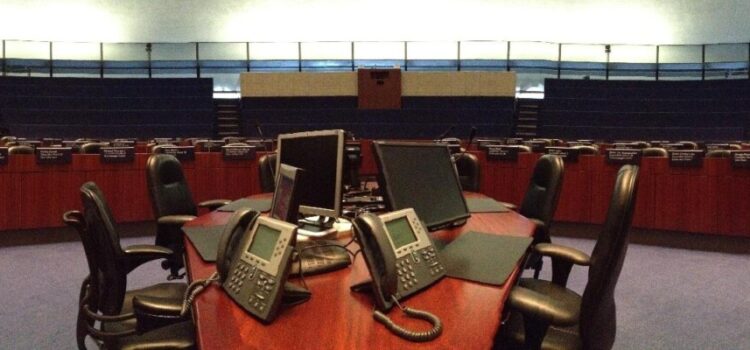

Torontonians are unimpressed by performance of Toronto City Council
PoliticsToronto Mar 30, 2022 Jeremy Honess

The ‘Unofficial Toronto City Council Satisfaction Forum’ gives Torontonians from all 24 wards the opportunity to voice their opinions on their city councillor, but only 10 wards were represented before the deadline.
The poll itself received 19 responses, with most of the responses coming from residents living in Ward 11 University-Rosedale.
According to this particular poll, Ward 11 City Councillor Mike Layton is good at what he does despite an everchanging political system. Despite that, there’s still an overwhelming belief among the respondents of this poll that members of the Toronto city council just aren’t doing enough.
An overwhelming 63.2 per cent of the respondents believed that their city councillors have not effectively managed issues that mattered most to them.
When asked about what kind of issues mattered most to them, one respondent from Ward 14 Toronto-Danforth said “[Councillor Paula Fletcher is] fine with the status quo. She’s not trying to push the envelope to help fix the housing crisis; she’s more interested in protecting wealthy homeowners. We are tired of the lack of progress and her lack of action on council. She contributes to its dysfunction. I am tired. We are all tired. #BringBackCompetentGovernment.”
Considering the severity of the claims, I reached out to the Ward 14 City Councillor to gain some clarity. Throughout the interview with Councillor Fletcher, she talked about the various affordable housing projects she has been and is currently working on. However, the underlying theme throughout the interview was time. “Development does take quite a long time, from the idea of having it approved and getting it built. That’s quite a long time,” said Councillor Fletcher.
That notwithstanding, another respondent left a similar message of discontent concerning Councillor Fletcher. According to this Forum, affordable housing is top of mind with people living within Ward 14.
When asked about the “status quo” comment, Councillor Fletcher responded, “Oh, my God, I’ve broken this,” said Fletcher. Councillor Fletcher emphasized that she’s worked hard to break the glass ceiling on the subject of affordable housing in Toronto, starting with the Don Summerville mixed housing development on Queen Street. She continued by saying that she has a lot of people who intentionally don’t recognize the work she’s put into making her ward – and by extension Toronto – a more affordable place to live.
Bearing that in mind, however, 36.8 per cent of the respondents believe that their city councillors do effectively manage issues that matter the most to them within their ward.
36.8 per cent of the respondents believe that their city councillor has made effective change throughout their ward, while 63.2 per cent believe otherwise.
57.9% of the respondents did not believe that their city councillor is doing enough for their community. 26.3% believed that their city councillors were doing their best to better their community whilst 15.8% were undecided.
When asked if the respondents were satisfied with the overall work of their city councillor, surprisingly, the polling data found that 63.2 per cent weren’t satisfied while 36.8 per cent of the respondents were satisfied.
The final question posed to the respondents was simple: Would you re-elect your city councillor should they run? Respondents were now provided with a third, “undecided” option, given the municipal election is seven months away. 52.6 per cent of the respondents would not re-elect their sitting city councillor. 36.6 per cent of the respondents would re-elect their sitting city councillor, while 10.5 per cent were undecided.
This small poll provides a small snapshot of the kinds of issues Torontonians are concerned about. One of the biggest takeaways is that the housing crisis needs to be addressed more effectively within the city council.
Ward 4 City Councillor Gord Perks agrees with this conclusion but adds the following, “I think we talk about [the housing crisis] a lot. I think that we haven’t made the moves we could have made. But I also think that the order of government which theoretically, has the most capacity to do something about it, the provincial government has been absent, just absent. They have been no help at all.”






